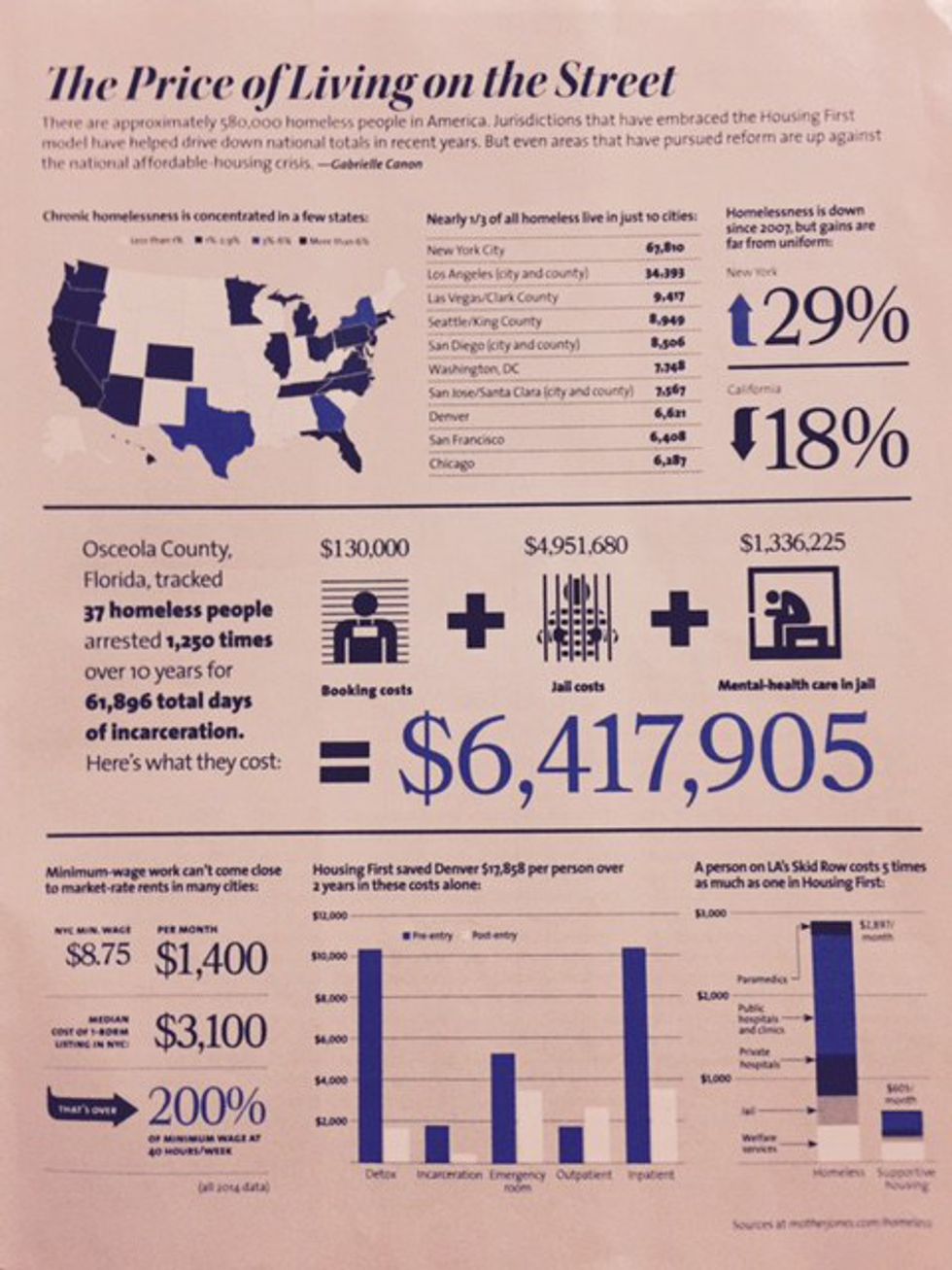“We have the cure for homelessness — it’s housing. What we lack is political will,” states Sam Tsemberis, a psychologist at New York University. He tests a new model for putting an end to homelessness along with a few others including Rene Zepeda as he helps find homes for those in the streets. Zepeda works in Utah with a program called, Housing First, which has now expanded to other states in America. According to Mother Jones, a nonprofit news outlet, “Utah has decreased the number of homelessness by 72 percent — largely by finding and building apartments where they can live permanently, with no strings attached.” This is more than just a program, it is a philosophy.
When we gather a new sense of thinking we can come up with amazing solutions. Some general ideas that come to mind when it comes to putting an end on homelessness include bettering education, creating more jobs, etc. What we will soon come to realize is that a “redesign” in our political system will make all of the difference while also saving an enormous amount of money. A lot of the homeless abuse drugs and alcohol and most of the time they end up in the ER or taking up space in jail. "This is expensive — costing between $30,000 and $50,000 per person per year,” according to the Interagency Council on Homelessness. Utah found that giving people supportive housing cost the system about half as much as leaving the homeless to live on the street.
Housing First has tried multiple experiments to end the homeless epidemic.They have ranged from models dealing with both long-term and short-term homelessness.
“We stick our heads in the sand or try to find bandages for the system." — Scott Carrier
From what I have seen, we either give a couple of dollars to a homeless person as we pass by, ignore them as if they don’t exist, or maybe even give them the rest of our sandwich. While we all have our own reasons for being the way we are and doing the things we do, we can’t deny the fact that we are all humans and we need to look out for one another.
Through trial and error, Housing First has found much success. In short, they have altered the way homelessness should be looked at and approached.
“Going from homelessness into a home changes a person’s psychological identity from outcast to member of the community,”
Tsemberis says. Previous efforts have included getting the homeless into a home by having them abide by certain rules and attend rehab or counseling only to find that it wasn’t working. When they decided to change their views to “operate with the belief that housing is a basic right,” they were able to find a higher success rate in not only getting people off of the streets but also keeping them off of the streets as well. With what started in Utah, there has been success in making change all throughout the country.
When we give cash to a homeless person we might be trying to help, but instead, we are enabling their addictions. When we ignore them we are denying them of who they truly are - human. When we offer them the rest of our sandwich or coffee, we are just looking at the surface. Making active strides towards the problem is what will give us the best results. Next time your head hurts, take a pill. The next time it hurts after that, try to figure out why you got a headache in the first place.






















